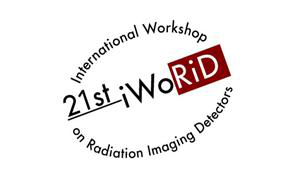Speaker
Description
The upgrade of the LHC to the High-Luminosity LHC (HL-LHC) is expected to increase the current instantaneous luminosity by a factor of 5 to 7, providing the opportunity to study rare processes and precision measurement of the standard model parameters. To cope with the increase in pile-up (up to 200), particle density and radiation, CMS will build new silicon tracking devices with higher granularity (to reduce occupancy) and improved radiation hardness. During the R&D period, tests performed under beam are a powerful way to develop and examine the behavior of silicon sensors in realistic conditions. The telescopes used up to now have a slow readout (< 10 kHz) for the needs of the CMS experiment, since the new outer-tracker modules have an effective return-to-zero time of 25 ns (corresponding to a 40 MHz frequency) and a trigger rate of 750 kHz. In order to test the CMS Tracker modules under the LHC nominal rate, a new pixel telescope named CHROMIE (CMS High Rate telescOpe MachInE) was designed, built and commissioned at CERN for beam tests with prototype modules for the CMS Phase-II Tracker upgrade. It is based on 16 CMS Phase-I Barrel Pixel modules of the same type as the ones used in the current CMS pixel detector. In this talk, the design of CHROMIE, the calibration of its modules, and its timing and synchronization aspects are presented, along with the first beam test results. In addition, the tracking algorithm developed for CHROMIE and a preliminary simulation study for the estimation of energy loss of primary particles, cluster multiplicity and spatial resolution are discussed.




